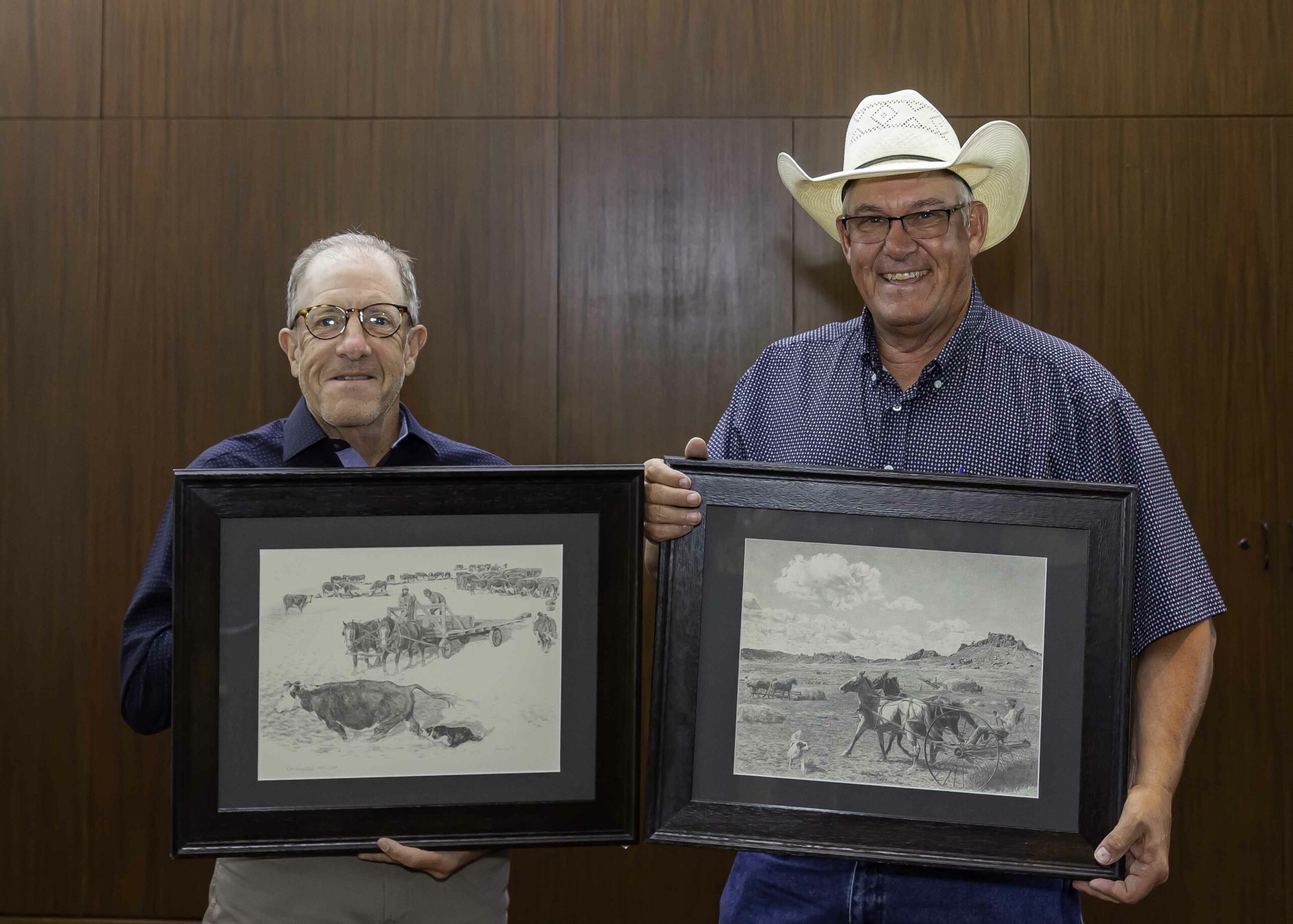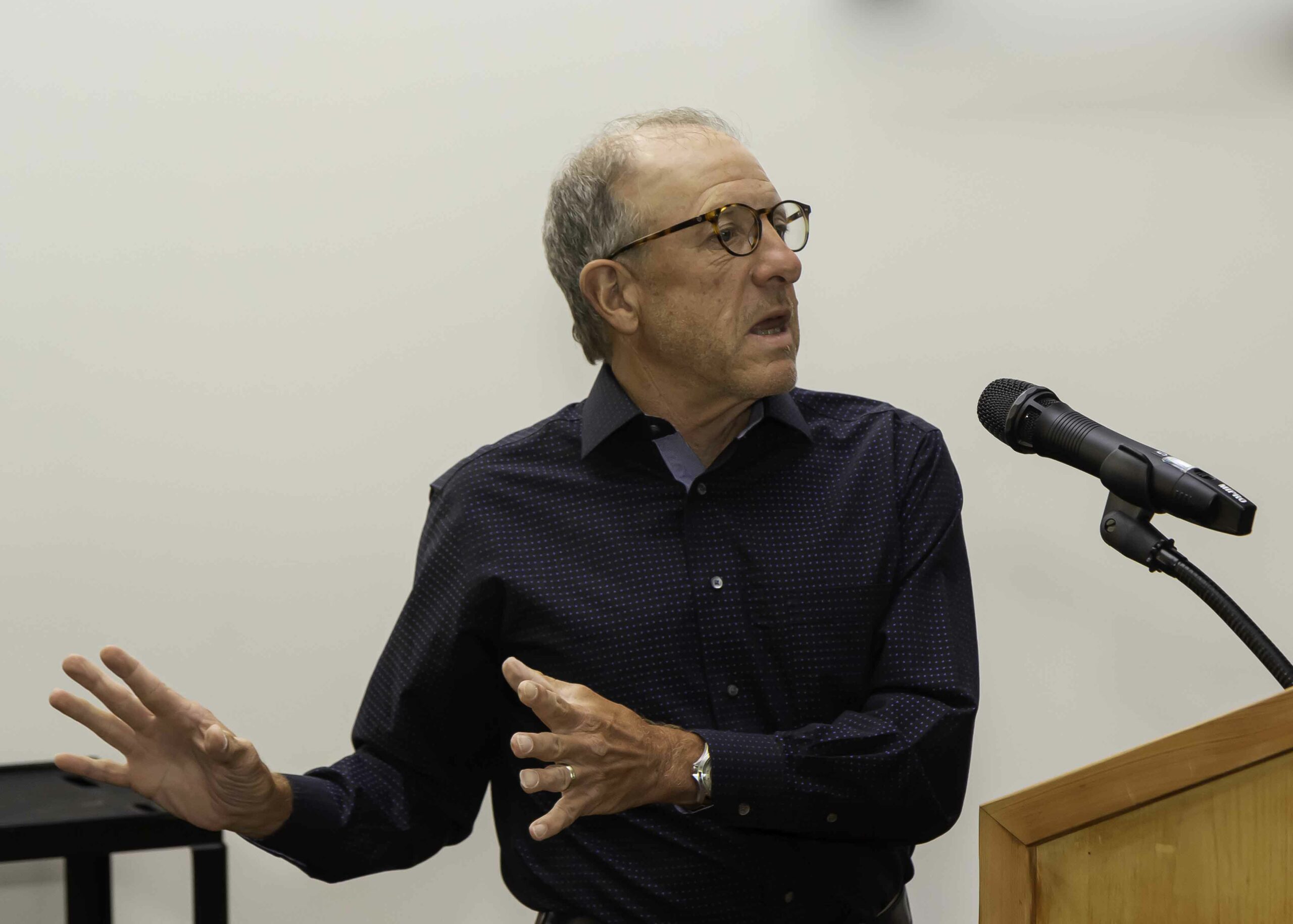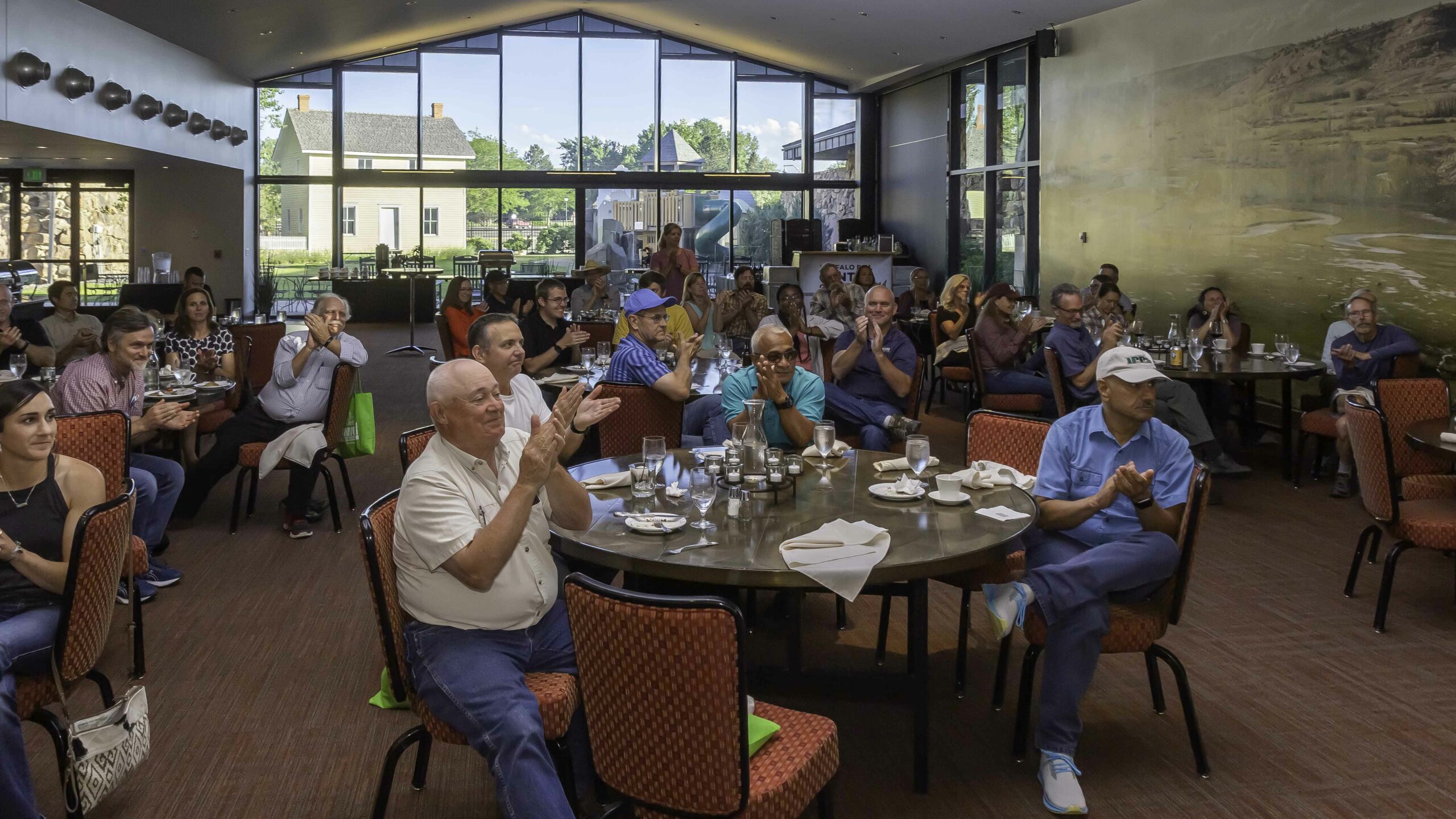


Citing his career-long record in sustainable, holistic range management and his leadership for the Western SARE program, the organization’s leaders recently presented the 3rd Annual Western Sustainability Pioneer Award to Mark Frasier, CEO of his family’s cattle ranch in Eastern Colorado. As one nominator noted, “Mark’s contribution and impact to sustainability in the West has been immense.”
As the presenter of the award, Administrative Council member Kent Wasson noted “Mark was one of the first visionary people in agriculture to help Western SARE on its path of funding sustainable agriculture in our region.”
F Cross Cattle Company markets thousands of cattle each year, and most are natural beef. The ranch was one of the first in the Western Region to utilize holistic management and intensive rest-rotation grazing. As a result of their excellent management, the ranch was recognized with the Environmental Stewardship Award by the National Cattlemen’s Beef Association (NCBA).
Another nominator noted, “Through his leadership in NCBA, Cattle FAX, the Colorado Livestock Association and more, Mark has been a passionate ambassador for sustainable agriculture, sound natural resource management, and economically viable additions to ag products in a huge geographic area.”
Mark was one of the founding members of the USDA Sustainable Agriculture Research and Education program (SARE) by participating in his first grant proposal review panel in 1994. According to former Regional Coordinator Dr. Phil Rasmussen, Mark was the first true ranch operator to serve on such a review panel. He served on the Western SARE Administrative Council for 11 years, acting as Chair for two of those years
In his presentation after accepting the award, Mark noted some perceptions of sustainability that have changed since his involvement with Western SARE. He also provided some insights on how Western SARE can leverage its resources to further impact agriculture.
“As the perception of sustainability has been embraced in all segments of society, I observe that it carries multiple meanings. To some, sustainability is all about carbon emissions, while others will dwell on locally sourced supply chains or even a preferred social outcome. I appreciate the principled view that the SARE program has traditionally taken – that for a production practice or management strategy to be truly sustainable it must include three essential elements; ecologically sound, economically viable, and socially acceptable,” said Mark.
Mark continued by pointing out that sustainability is a process, not a product. “Food or fiber from a production model which would be considered sustainable is virtually identical in taste and nutrition from a system which would be judged as unsustainable, given comparable quality. Producers should remember that a significant portion of consumers willingly pay a premium for food grown within a system they feel good about and can support.”
Lastly, Mark urged the Administrative Council to consider the idea that to make the greatest progress toward a sustainable food system it is important to not ignore the needs of large farmers and major crops. “One transformational idea has the potential to be leveraged over millions of acres and a significant share of production.”
Jenna Meeks, Professional Development Coordinator appreciated Marks’ comments, “The daily minutia of agriculture can quickly overshadow the vision for progress. Mark is an outstanding Pioneer Award recipient as his thoughtful and inspirational comments motivated Western SARE to continue the process of sustainability.”
Western SARE created the Western Sustainability Pioneer Award to recognize the tremendous efforts made by many in the region that have contributed to agricultural sustainability and to bring increased awareness to sustainable agriculture leaders and their work.